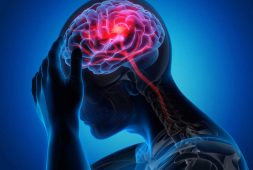New Study Finds Kidney Disease Among Biggest Cardiac Arrest Risk Factors For Latinos And Hispanics

A recent study suggests that chronic kidney disease stands out as a prominent risk factor for sudden cardiac arrest within the Hispanic and Latino population.
Researchers delved into the medical records of two distinct groups of Hispanic and Latino adults. 295 individuals who had experienced sudden cardiac arrest and a control group of 590 individuals without such a medical history.
The study, published in the Journal of the American Heart Association, unveiled a significant association between chronic kidney disease and sudden cardiac arrest among the participants.
The findings revealed that nearly half of the patients who experienced sudden cardiac arrest also had chronic kidney disease, with 20 percent of them facing advanced cases necessitating dialysis.
Lead study author, Kyndaron Reinier, PhD, MPH, who happens to be the associate director of the center for cardiac arrest prevention at the Smidt Heart Institute at Cedars-Sinai Health System in Los Angeles, said in a statement, “We were surprised by the high proportion of Hispanic or Latino people with chronic kidney disease, and especially the high number on dialysis.”
In comparison to individuals without a history of cardiac arrest, those who did experience this life-threatening event were 7.3 times more likely to have chronic kidney disease.
“Early detection and management of chronic kidney disease may reduce sudden cardiac arrest risk among Hispanic or Latino individuals. The death rate for sudden cardiac arrest is more than 90 percent, making prediction and prevention of this condition a top priority,” Dr. Reinier said.
What Occurs During Cardiac Arrest?
Sudden cardiac arrest is a critical condition where all heart activity and breathing cease, leading to unconsciousness. Immediate medical attention, such as cardiopulmonary resuscitation (CPR) and the use of an automated external defibrillator (AED), is imperative for restarting the heart and preventing fatality.
While irregular heartbeats are commonly identified as the primary cause of sudden cardiac arrest, it can affect individuals with no history of heart disease. Risk factors such as smoking, obesity, diabetes, sedentary lifestyle, high blood pressure, and elevated cholesterol levels can also elevate the likelihood of sudden cardiac arrest.
Research Points Out Inequalities in Care
The study further illuminated disparities in care, revealing that heavy drinkers were 4.5 times more likely to experience sudden cardiac arrest. A heart rhythm disorder called atrial fibrillation quadrupled the risk, and a history of stroke or coronary artery disease tripled the risk of sudden cardiac arrest.
Though the study did not establish a direct causal relationship between chronic kidney disease and sudden cardiac arrest, it underscored the lower prevalence of kidney disease among those who did not experience sudden cardiac arrest. Additionally, less than 1 percent of this group required dialysis.
One noteworthy observation was that while Hispanic and Latino individuals in the United States are not more prone to chronic kidney disease compared to their white counterparts, they are approximately 50 percent more likely to suffer from end-stage renal disease requiring dialysis.
Joaquin Cigarroa, MD, Director of the Knight Cardiovascular Institute and Professor of Medicine at Oregon Health and Sciences University in Portland, who was not involved in the study, highlighted potential health disparities faced by Hispanic individuals in the United States as a contributing factor to these findings.
Dr. Cigarroa says, “Hispanics have a high prevalence of diabetes and high blood pressure along with lipid abnormalities. Due to social disparities including lower rates of insurance and access, individuals present later and have complications of diabetes including chronic kidney disease and higher rates of consequent dialysis.”
It’s Essential to Be Proactive
Advanced kidney disease and dialysis are intricately linked to various cardiovascular problems, including coronary artery disease, heart failure, and heart attacks, all of which can contribute to sudden cardiac arrest, explains Dr. Cigarroa.
Despite the study’s limitations, such as the majority of participants being of Mexican descent, the results emphasize the need for vigilance and preventive measures within the Hispanic and Latino population.
Senior study author, Sumeet Chugh, MD, who is also the director of the center for cardiac arrest prevention at the Smidt Heart Institute, said in the statement, “We hope other researchers try to replicate our findings in different populations. We would like to compare risk predictors for sudden cardiac arrest in all individuals to determine whether ethnicity-specific prevention or treatment measures are needed.”
Cigarroa emphasized the importance of knowing one’s blood pressure, cholesterol levels, and blood sugar levels as key preventive measures against sudden cardiac arrest. Taking proactive steps, such as modifying one’s diet and adhering to medications if necessary, can significantly contribute to reducing the risk of this life-threatening event.



